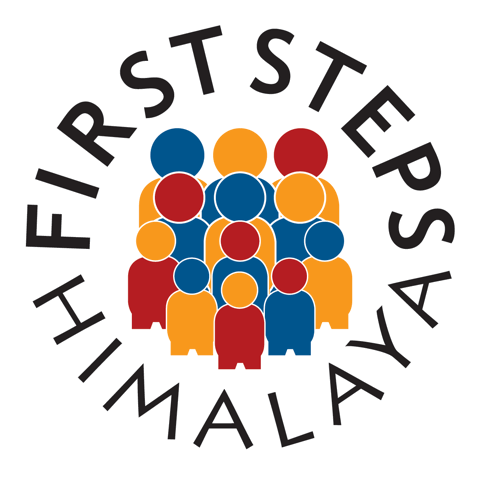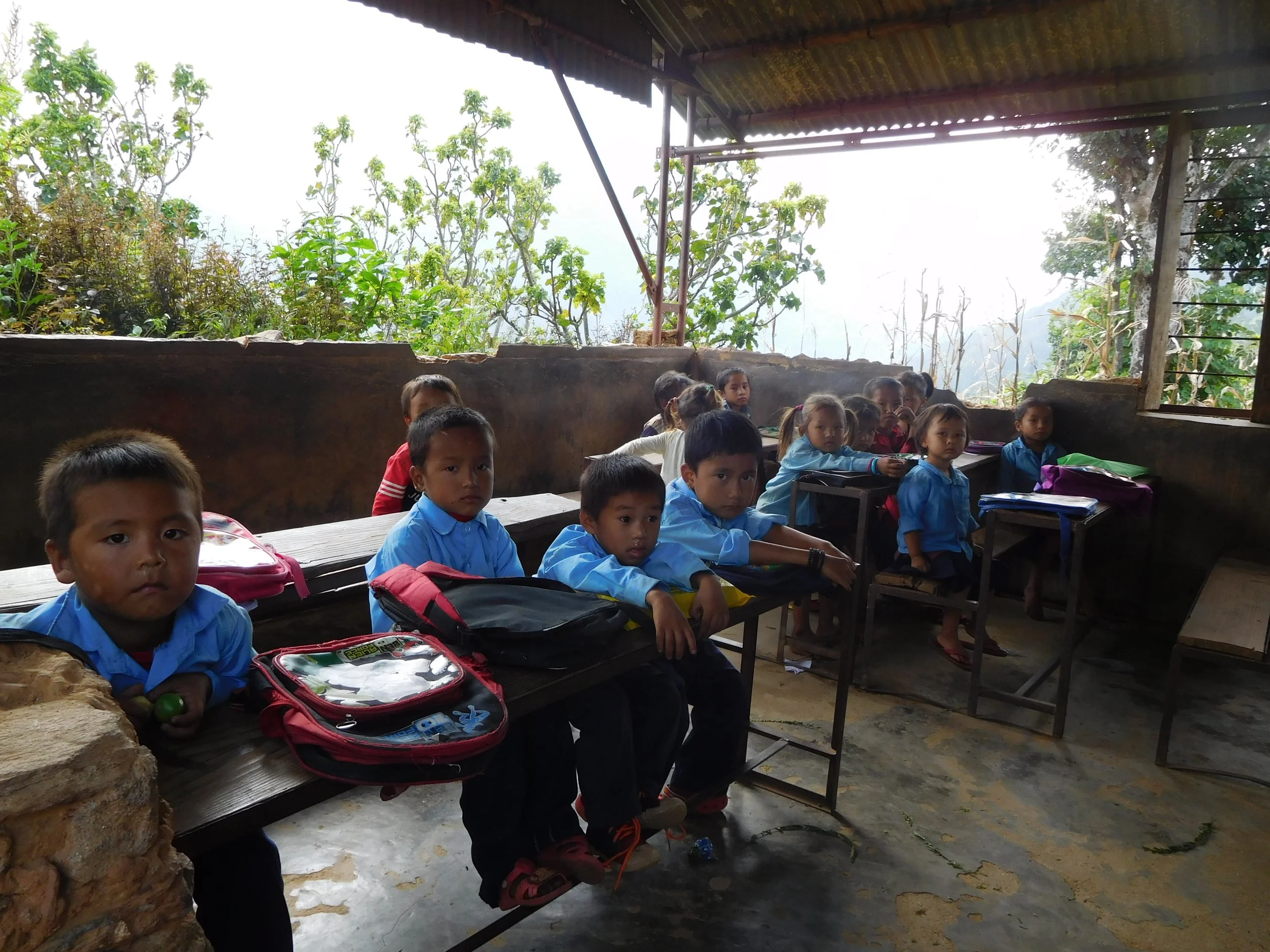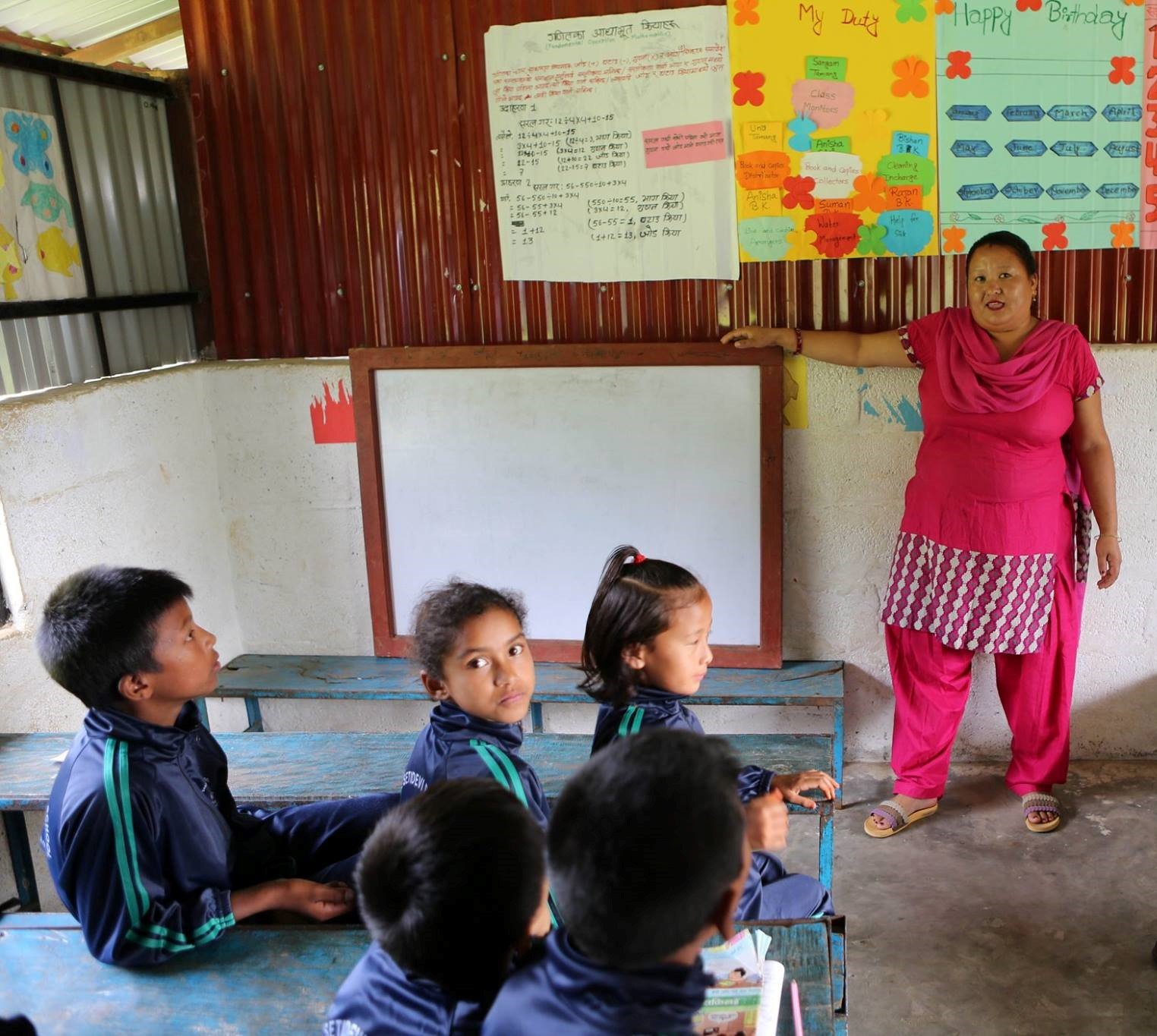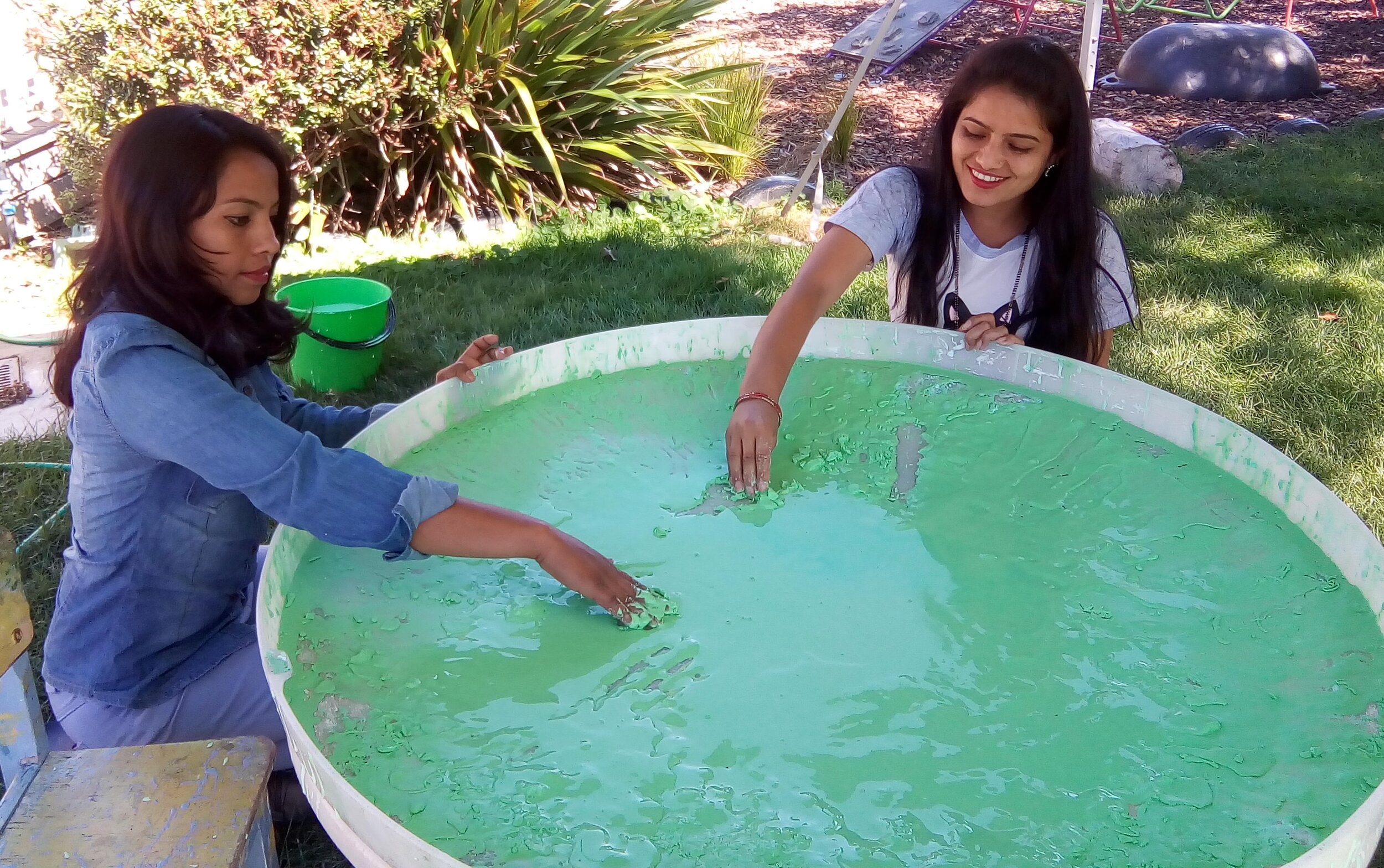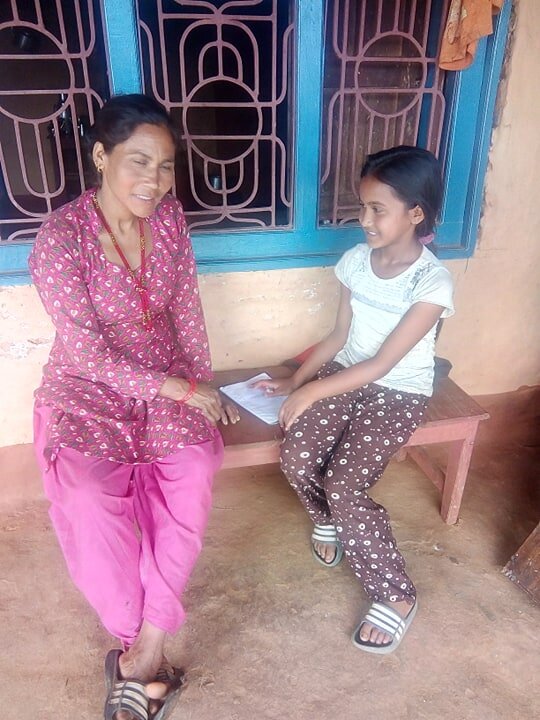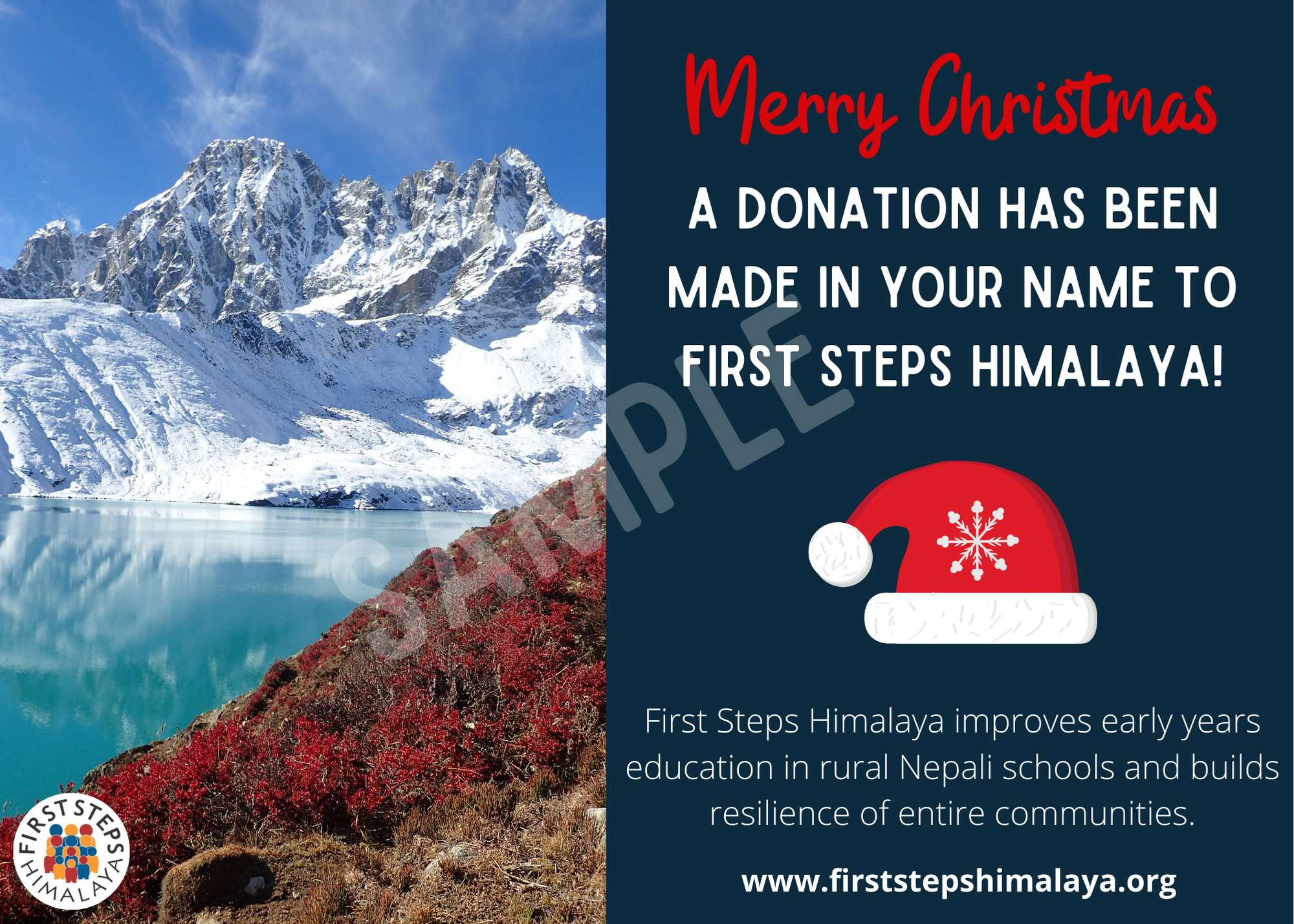Our blog this month follows a day in the life of Assistant Project Manager in Nepal, Sabina Tamang.
Sabina lives in the picturesque village of Mulkharka in Sindhupalchok. Her family have hosted many First Steps Himalaya volunteers, Beyond the Clouds tours and the NZ management team whilst in Nepal. Read on as Sabina describes her daily life in this beautiful part of Nepal.
The views from Sabina’s village are amazing!
I wake up early in the morning around 5:30am, brush my teeth and wash my face. Sometimes, there is a clear view of the mountains from our place in the morning. It is a wonderful view and a very peaceful place to live.
Sabina’s yard
My first chore of the day is to collect water from the tap for our household use. I fill bottles for the kitchen and buckets for other household chores. Then I have a light breakfast with my family.
Gathering water for the household
After that, I start cooking our morning meal (usually dal, rice, green vegetables, pickles and sometimes meat as a curry) for my family. We eat this meal around 8.30am. After that we are all busy at work, so we eat plenty to keep us going.
Sabina cooking a morning meal for her family
Dressed, ready for work
The steep slopes around Mulkharka village
Once I have eaten, I change and get ready for work. I walk uphill on our village road to reach the bus stop at Irkhu. This walk takes about 30 minutes. The bus arrives around 9.30am and I reach the office in Sangachok at 10am.
I leave work at 4pm and catch the bus back to Irkhu, returning downhill to our home. As soon as I get home, I change out of my work clothes to look after the animals and work in the kitchen garden. We grow most of our own vegetables.
Sabina and her family grow most of their vegetables themselves.
As the only daughter-in-law in the house, it is my duty to cook dinner for our family of five every night. I need to pick vegetables, wash them thoroughly and prepare all the ingredients.
Once my cooking is done, we all gather together in the kitchen to have dinner. When everyone has finished their meal, I wash the dishes and can finally relax.
I like reading, listening to music and watching TV in the evenings. I go to bed at 10pm most nights.
Hand washing clothes on Sabina’s day off work.
Saturday is my day off so I wash my clothes. We do this by hand in Nepal as we don’t have washing machines. It is nice to do this in the sun. I also work on our land at the weekend.
